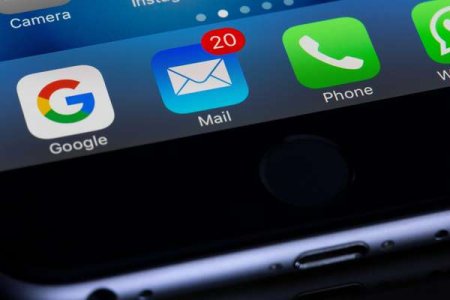New warning for email users: The scam that tricks you into handing over control
- Replies 0
Imagine getting a notification about an unusual activity on your email account.
Then, an urgent email arrives—seemingly from Google—warning that your account is at risk. It looks real, sounds legitimate, and pressures you to act fast.
But what if it’s all part of a highly sophisticated scam designed to hijack your account and steal your personal data?
Gmail users worldwide are being targeted by an increasingly sophisticated phishing scam, with cybercriminals leveraging artificial intelligence (AI) to craft emails and phone calls that appear to be from trusted sources.
According to cybersecurity experts at Malwarebytes, the scam typically begins with a phone call from someone posing as Google support, warning the victim of suspicious activity on their account.
Shortly after, the target receives an email disguised as an official security notice, urging them to verify their identity by providing a Gmail recovery code.
The experts explained: "The goal is to convince the target to provide the criminals with the user's Gmail recovery code, claiming it's needed to restore the account."
Once scammers get access to your Gmail recovery code, they can take full control of your account—and anything linked to it.
That includes:
Phishing scams trick people into revealing personal information. Source: Services Australia / YouTube.
Sam Mitrovic, a Microsoft solutions consultant, was one of the many users targeted.
He received a Gmail account recovery request, followed by a phone call. The caller claimed there was suspicious activity on his account.
"Scams are becoming increasingly sophisticated, more convincing, and deployed at larger scales," he stated. "People are busy, and this scam sounded and looked legitimate enough that I would give them an A for their effort."
There are various types of phishing scams. Source: VPNpro / YouTube.
Experts warn that AI-generated phishing attempts are becoming increasingly sophisticated.
The FBI has tracked a surge in these scams, with criminals now able to clone voices, generate realistic emails, and create fake login pages that look identical to Google’s.
Read more: FBI uncovers genius email scams—protect your inbox now

Have you ever received a convincing-looking scam email?
Do you have tips on password security or avoiding phishing scams?
Share your experiences in the comments below—let’s help each other stay safe online!
Then, an urgent email arrives—seemingly from Google—warning that your account is at risk. It looks real, sounds legitimate, and pressures you to act fast.
But what if it’s all part of a highly sophisticated scam designed to hijack your account and steal your personal data?
Gmail users worldwide are being targeted by an increasingly sophisticated phishing scam, with cybercriminals leveraging artificial intelligence (AI) to craft emails and phone calls that appear to be from trusted sources.
According to cybersecurity experts at Malwarebytes, the scam typically begins with a phone call from someone posing as Google support, warning the victim of suspicious activity on their account.
Shortly after, the target receives an email disguised as an official security notice, urging them to verify their identity by providing a Gmail recovery code.
The experts explained: "The goal is to convince the target to provide the criminals with the user's Gmail recovery code, claiming it's needed to restore the account."
Once scammers get access to your Gmail recovery code, they can take full control of your account—and anything linked to it.
That includes:
- Emails containing sensitive personal or financial information
- Banking and payment apps connected to your Gmail
- Cloud storage services with personal documents and passwords
- Other linked accounts such as social media and work-related logins
Phishing scams trick people into revealing personal information. Source: Services Australia / YouTube.
Sam Mitrovic, a Microsoft solutions consultant, was one of the many users targeted.
He received a Gmail account recovery request, followed by a phone call. The caller claimed there was suspicious activity on his account.
"Scams are becoming increasingly sophisticated, more convincing, and deployed at larger scales," he stated. "People are busy, and this scam sounded and looked legitimate enough that I would give them an A for their effort."
Stay ahead of scammers: How to protect your Gmail account
As scammers become increasingly clever, it’s essential to stay a step ahead! Here are some top tips to help you protect your email account and keep your information safe:- Be skeptical of urgent security warnings - If an email or call pressures you to act fast, take a step back. Google will never call you out of the blue.
- Never share your recovery code - Google will not ask you to confirm your identity this way. If someone asks for it, it’s a scam.
- Enable multi-factor authentication (MFA) - Add an extra layer of protection by requiring a second step before logging in.
- Check for phishing red flags - Look out for generic greetings, urgent language, or unfamiliar senders. Even emails that look real may have small inconsistencies.
- Use a password manager - It auto-fills your credentials only on legitimate sites, reducing the risk of entering details on a fake login page.
- Keep your security software updated Use anti-phishing tools and enable message filtering on your mobile device to block suspicious emails.
There are various types of phishing scams. Source: VPNpro / YouTube.
Experts warn that AI-generated phishing attempts are becoming increasingly sophisticated.
The FBI has tracked a surge in these scams, with criminals now able to clone voices, generate realistic emails, and create fake login pages that look identical to Google’s.
Read more: FBI uncovers genius email scams—protect your inbox now
Key Takeaways
- AI-driven phishing scams are targeting Gmail users, tricking them into sharing recovery codes.
- Scams often begin with a call pretending to be Google support, followed by a fake security email.
- The FBI and security experts urge Gmail users to avoid sharing recovery codes and enable multi-factor authentication.
- The FBI and security experts urge Gmail users to avoid sharing recovery codes and enable multi-factor authentication.
Do you have tips on password security or avoiding phishing scams?
Share your experiences in the comments below—let’s help each other stay safe online!







